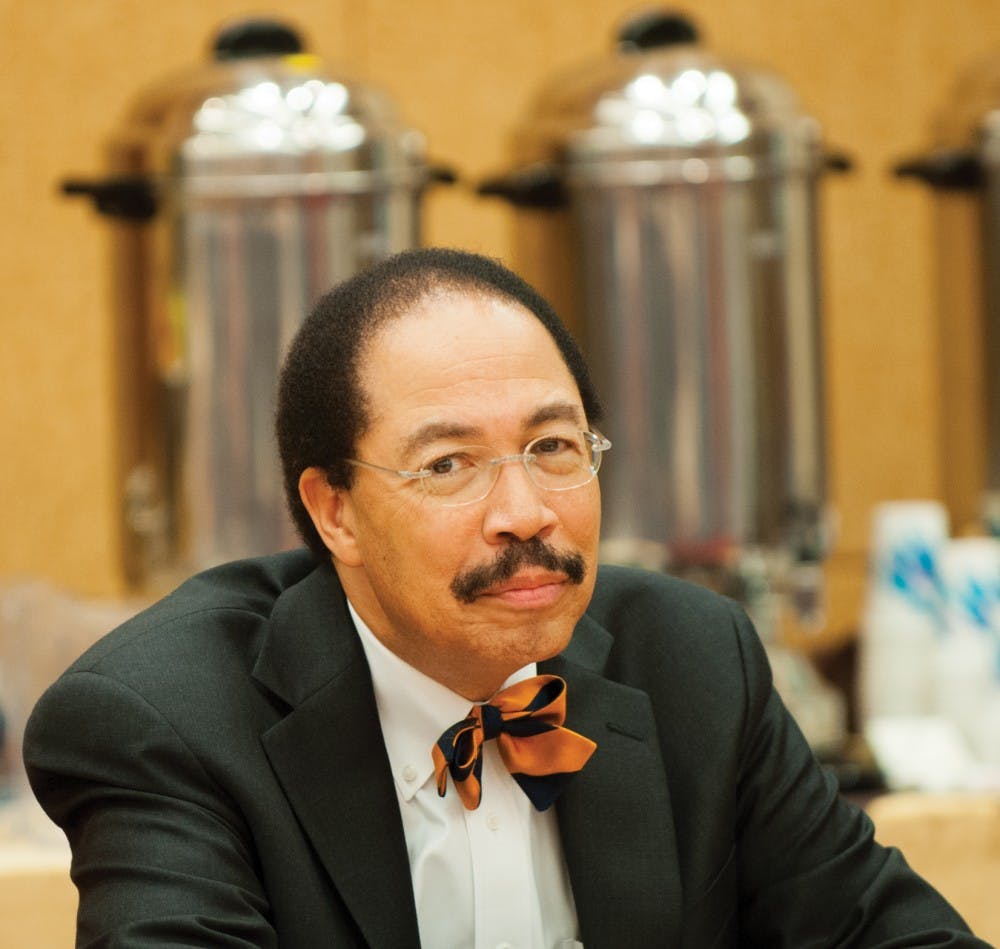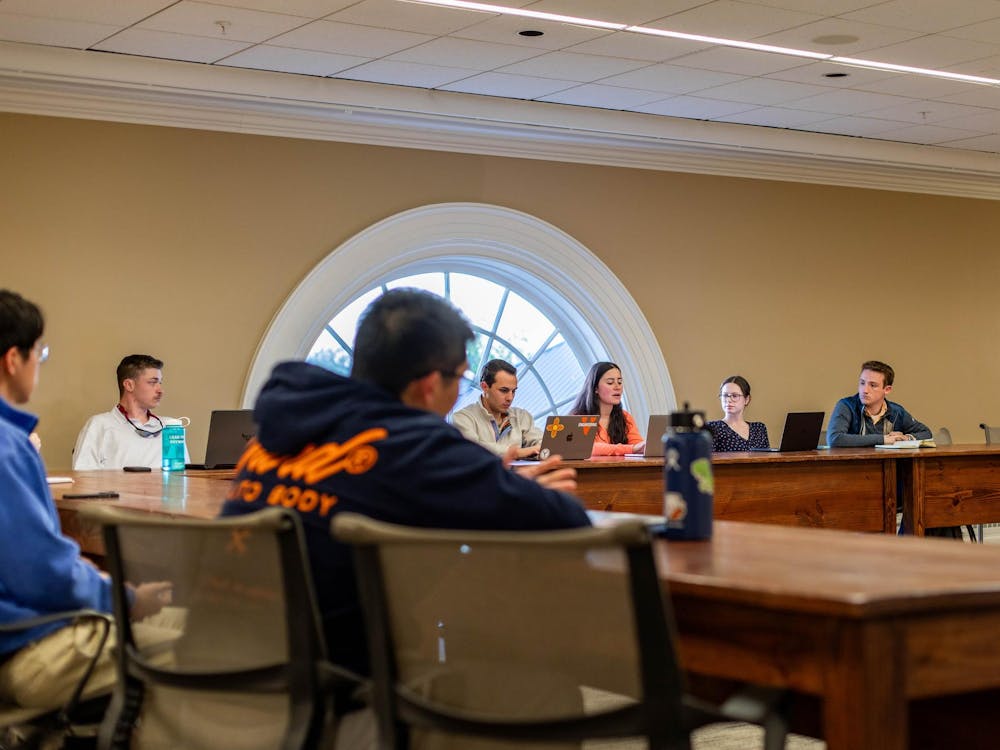The Board of Visitors convened in a special meeting Friday to discuss the University’s ongoing efforts to combat sexual assault.
Rector George Martin set the meeting’s tone early, acknowledging the tumultuous semester the University community has experienced.
“Few student bodies in America or anywhere in the world have had to endure a semester like the one our students have endured this fall,” he said, noting the deaths of four University students along with the recent allegations of sexual assault which came to light in a Rolling Stone article published last month.
He said the Rolling Stone allegations, whose accuracy has been hotly refuted in the weeks since the article’s publication, were damaging to many individuals, to the community’s reputation, and to the greater cause of reducing sexual violence on Grounds.
“We are tempted to respond to these injustices with anger,” he said. “But a great University does not respond in anger. Its very mission is to teach the power of truth and reason over prejudice and passion. And we need to practice what we preach.”
Because students involved in the article have not waived their privacy rights, he said, the University has been prevented from “calling attention to the false portrayal of its actions in the Rolling Stone article,” and from answering questions about what information University personnel were aware of before the article’s publication.
The Board quickly went into a closed executive session, which Martin said would offer members the opportunity to hear from legal counsel about what specific to the allegations could be disclosed publicly — though he noted members and administrators would refrain from discussing the findings of any investigations until they are completed.
After a 90-minute executive session, the Board heard from University President Teresa Sullivan about several long-term and short-term policies and proposals the University intends to put forward to help foster a safer environment for students on Grounds.
Among a host of initiatives, Sullivan said the University will be installing upgraded lighting systems on Grounds, installing surveillance cameras across Grounds, collaborating with local merchants who wish to have cameras installed on their properties and developing a new “ambassador program,” which will bring 10-12 unarmed personnel to patrol the University area and provide students a “visible sign of security.”
Many of these efforts, Sullivan emphasized, were an ongoing part of the University’s plan to increase safety on and around Grounds, even before the Rolling Stone article was published.
Sullivan also approved the hiring of four new counselors — two at the Women’s Center, as part of an effort to offer long-term support groups for sexual assault survivors, and two who will work with Counseling and Psychological Services. These counselors come in addition to two recently hired Title IX investigators.
In the long term, she said the University community must work to change its culture, creating an environment with more consistent reporting of sexual assaults and better bystander intervention.
"I believe U.Va. can be a leader in this effort,” she said. “We are in the spotlight, so we have the opportunity to lead."
The Ad Hoc Group on University Climate and Culture, chaired by Sullivan, will meet again Monday to further develop and advance strategies for improving culture as well as University prevention and response efforts.
“I want to emphasize that we want our university to be a safe place for all of our students,” Sullivan said. “Not because we want to be compliant with the law, but because that’s the way [students] will learn best.”
Chief Operating Officer Pat Hogan offered a brief summary of the financial impact of the proposals Sullivan put forward. Improved lighting — a project already underway, he said, but now with an accelerated timeline — will cost $2 million, with an additional $430,000 for improving crosswalk safety. Upgrading the University’s camera system will top $1 million, while the ambassador program is expected to reach $800,000 and the four new counselors will cost $190,000 annually.
The Board then heard a presentation from Apalla Chopra, a legal representative from O’Melveny and Myers, the firm tasked by Attorney General Mark Herring to examine the University’s handling of sexual assault cases. Chopra offered a detailed overview of the various obligations and requirements set forth by the Clery Act, Title IX and the Family Educational Rights Privacy Act.
University Police Chief Michael Gibson rounded out the open session of the meeting, offering a brief introduction to the University’s Clery Act report — released this year on Sept. 30.
The Board is next scheduled to meet Feb. 19 and 20.






